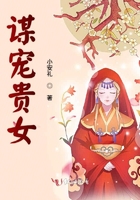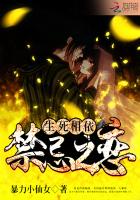One hardly knew whether they made the place look less desolate or more so. But they were token of a woman's hand, and of a nature which craved something more than the unredeemed wilderness around her afforded.
A dull and lurid light streamed out from the wide-open door of the store. Alessandro drew cautiously near. The place was full of men, and he heard loud laughing and talking. He dared not go in.
Stealing around to the rear, he leaped the fence, and went to the other house and opened the kitchen door. Here he was not afraid.
Mrs. Hartsel had never any but Indian servants in her employ. The kitchen was lighted only by one dim candle. On the stove were sputtering and hissing all the pots and frying-pans it would hold.
Much cooking was evidently going on for the men who were noisily rollicking in the other house.
Seating himself by the fire, Alessandro waited. In a few moments Mrs. Hartsel came hurrying back to her work. It was no uncommon experience to find an Indian quietly sitting by her fire. In the dim light she did not recognize Alessandro, but mistook him, as he sat bowed over, his head in his hands, for old Ramon, who was a sort of recognized hanger-on of the place, earning his living there by odd jobs of fetching and carrying, and anything else he could do.
"Run, Ramon," she said, "and bring me more wood; this cotton wood is so dry, it burns out like rotten punk; I'm off my feet to-night, with all these men to cook for;" then turning to the table, she began cutting her bread, and did not see how tall and unlike Ramon was the man who silently rose and went out to do her bidding. When, a few moments later, Alessandro re-entered, bringing a huge armful of wood, which it would have cost poor old Ramon three journeys at least to bring, and throwing it down, on the hearth, said, "Will that be enough, Mrs. Hartsel?" she gave a scream of surprise, and dropped her knife. "Why, who --" she began; then, seeing his face, her own lighting up with pleasure, she continued, "Alessandro! Is it you? Why, I took you in the dark for old Ramon! I thought you were in Pachanga."
"In Pachanga!" Then as yet no one had come from the Senora Moreno's to Hartsel's in search of him and the Senorita Ramona!
Alessandro's heart felt almost light in his bosom, From the one immediate danger he had dreaded, they were safe; but no trace of emotion showed on his face, and he did not raise his eyes as he replied; "I have been in Pachanga. My father is dead. I have buried him there."
"Oh, Alessandro! Did he die?" cried the kindly woman, coming closer to Alessandro, and laying her hand on his shoulder. "I heard he was sick." She paused; she did not know what to say. She had suffered so at the time of the ejectment of the Indians, that it had made her ill. For two days she had kept her doors shut and her windows close curtained, that she need not see the terrible sights.
She was not a woman of many words. She was a Mexican, but there were those who said that some Indian blood ran in her veins.
This was not improbable; and it seemed more than ever probable now, as she stood still by Alessandro's side, her hand on his shoulder, her eyes fixed in distress on his face. How he had altered! How well she recollected his lithe figure, his alert motion, his superb bearing, his handsome face, when she last saw him in the spring!
"You were away all summer, Alessandro?" she said at last, turning back to her work.
"Yes," he said: "at the Senora Moreno's."
"So I heard," she said. "That is a fine great place, is it not? Is her son grown a fine man? He was a lad when I saw him. He went through here with a drove of sheep once."
"Ay, he is a man now," said Alessandro, and buried his face in his hands again.
"Poor fellow! I don't wonder he does not want to speak," thought Mrs. Hartsel. "I'll just let him alone;" and she spoke no more for some moments.
Alessandro sat still by the fire. A strange apathy seemed to have seized him; at last he said wearily: "I must be going now. I wanted to see Mr. Hartsel a minute, but he seems to be busy in the store."
"Yes," she said, "a lot of San Francisco men; they belong to the company that's coming in here in the valley; they've been here two days. Oh, Alessandro," she continued, bethinking herself, "Jim's got your violin here; Jose brought it."
"Yes, I know it," answered Alessandro. "Jose told me; and that was one thing I stopped for."
"I'll run and get it," she exclaimed.
"No," said Alessandro, in a slow, husky voice. "I do not want it. I thought Mr. Hartsel might buy it. I want some money. It was not mine; it was my father's. It is a great deal better than mine. My father said it would bring a great deal of money. It is very old."
"Indeed it is," she replied; "one of those men in there was looking at it last night. He was astonished at it, and he would not believe Jim when he told him about its having come from the Mission."















